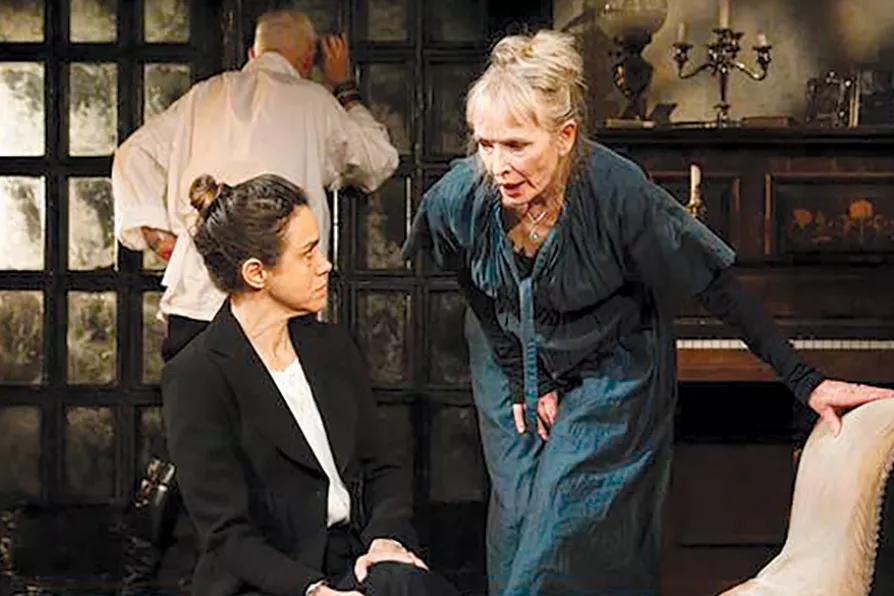RON JACOBS welcomes a timely history of the Anti Imperialist league of America, and the role that culture played in their politics

 (L to R) Hilton McRae as Edgar; Emily Bruni as Katrin and Lindsay Duncan as Alice,
[Alex Brenner]
(L to R) Hilton McRae as Edgar; Emily Bruni as Katrin and Lindsay Duncan as Alice,
[Alex Brenner]
The Dance of Death
Arcola
AUGUST STRINDBERG’S hugely influential play The Dance of Death, in a new version by Oscar-winning writer Rebecca Lenkiewicz (for Best Foreign Language Film Ida, co-written with Paweł Pawlikowski) is a thrilling proposition at the Arcola. And when you add the intelligent, star-performance skills of the luminous Lindsay Duncan to the mix – not to mention the commanding confidence of acclaimed director Mehmet Ergen – you would expect a night to remember from this highly anticipated run.
So why the disappointment?

MARY CONWAY applauds the revival of a tense, and extremely funny, study of men, money and playing cards

MARY CONWAY applauds the study of a dysfunctional family set in an Ireland that could be anywhere

MARY CONWAY relishes two matchless performers and a masterclass in tightly focused wordplay











